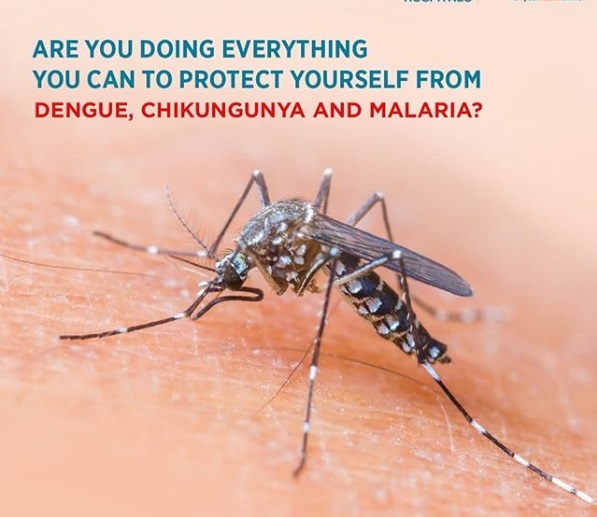Malaria, chikungunya, and dengue are some of the common mosquito-borne fevers that can result in severe morbidity. Recently, the instances of these diseases have significantly increased in number. Malaria is associated with the Anopheles mosquito, whereas the other two diseases are caused due to an infection spread by the Aedes mosquito. While dengue and chikungunya are insect-borne viral diseases, malaria, on the other hand, is caused by a parasite called Plasmodium. This parasite spreads through infected mosquitoes. Nevertheless, all the three diseases overlap in distribution to a very large extent which makes it difficult to distinguish them from one another based on their symptoms, especially during the early stages. So, the first step to prevent any of these diseases from happening is to understand them well.
Dengue
The first thing that we need to know and understand is what dengue is, what are its symptoms, and how to prevent it from happening. For a simple understanding of the disease, we can say that dengue fever is nothing but a viral infection that is carried by the Aedes mosquito. This disease can be caused by one of four viruses, namely the DEN-1, DEN-2, DEN-3, and DEN-4. In many places, dengue fever is also known as the break-bone fever due to the severe muscle and joint pain experienced by the patient. The pain feels like the breaking of bones, due to which it gets its name.
What are the Symptoms of Dengue?
The exact symptoms of this fever highly depend on the age of the patient. It generally starts with a fever within a week of the person being bitten by the mosquito. Some of the common symptoms include high fever (up to 105º F), severe muscle and joint pain, severe headache, a red rash that starts on the chest, back, or stomach and spreads to the limbs and face, pain behind the eyes, nausea and vomiting, and diarrhoea.
Chikungunya
This term chikungunya means ‘to walk bent’ and the main symptoms experienced by the patients include fever and joint pain. This is a virus that gets transferred from an infected female Aedes aegypti mosquito, also known as the ‘yellow fever mosquito’. Though Chikungunya is not considered contagious, in many cases it has been seen being transferred through contact. This disease can only be confirmed by doing a blood test and currently, there are no vaccines available for it.
What are the Symptoms of Chikungunya?
It is commonly seen that the incubation period of this disease is between 2-6 days, but the symptoms start to appear on the surface about 4-7 days post-infection. Some of the most common symptoms include high fever (40 °C or 104 °F) that lasts for two days and abruptly ends, viral rashes on the trunk or limbs, joint pain affecting multiple joints, headache, loss of appetite, etc.
Malaria
Malaria is a life-threatening blood disease that is caused by a mosquito bite. This disease is caused by a parasite called Plasmodium. Once a person is infected, this parasite multiplies in the liver and then in the red blood cells (RBC).
What are the Symptoms of Malaria?
There are two types of malaria and the symptoms of both vary.
-
- Uncomplicated Malaria: Symptoms of uncomplicated malaria include an initial stage with sensations of cold with chills or shivering, followed by the second stage of headaches, fever, and vomiting, followed by a return to normalcy (in temperature) with sweating, fatigue, or tiredness. Sometimes seizures may occur in younger individuals
- Severe Malaria: Symptoms of severe malaria include fever and shivers/chills, impaired consciousness, respiratory distress and deep breathing, multiple convulsions, signs of anaemia and abnormal bleeding, evidence of vital organ dysfunction, and clinical jaundice.
Tips to Prevent Yourself from Getting Dengue Fever, Chikungunya, or Malaria
Dengue and chikungunya are spread by the Aedes mosquitos which are active during the day whereas the Anopheles mosquitoes are active during nights. This means that one needs to prevent getting bitten during the day as well as night. Some other preventive measures include:
- Wearing light-coloured, long-sleeved shirts and full pants
- Avoid travelling to areas with outbreaks of any one of or all these three diseases
- Using mosquito repellent on exposed skin
- Fixing mesh on the windows and doors of the house to keep the mosquitoes out.
Know more about these infectious disease & treatment, click here to visit the website.


